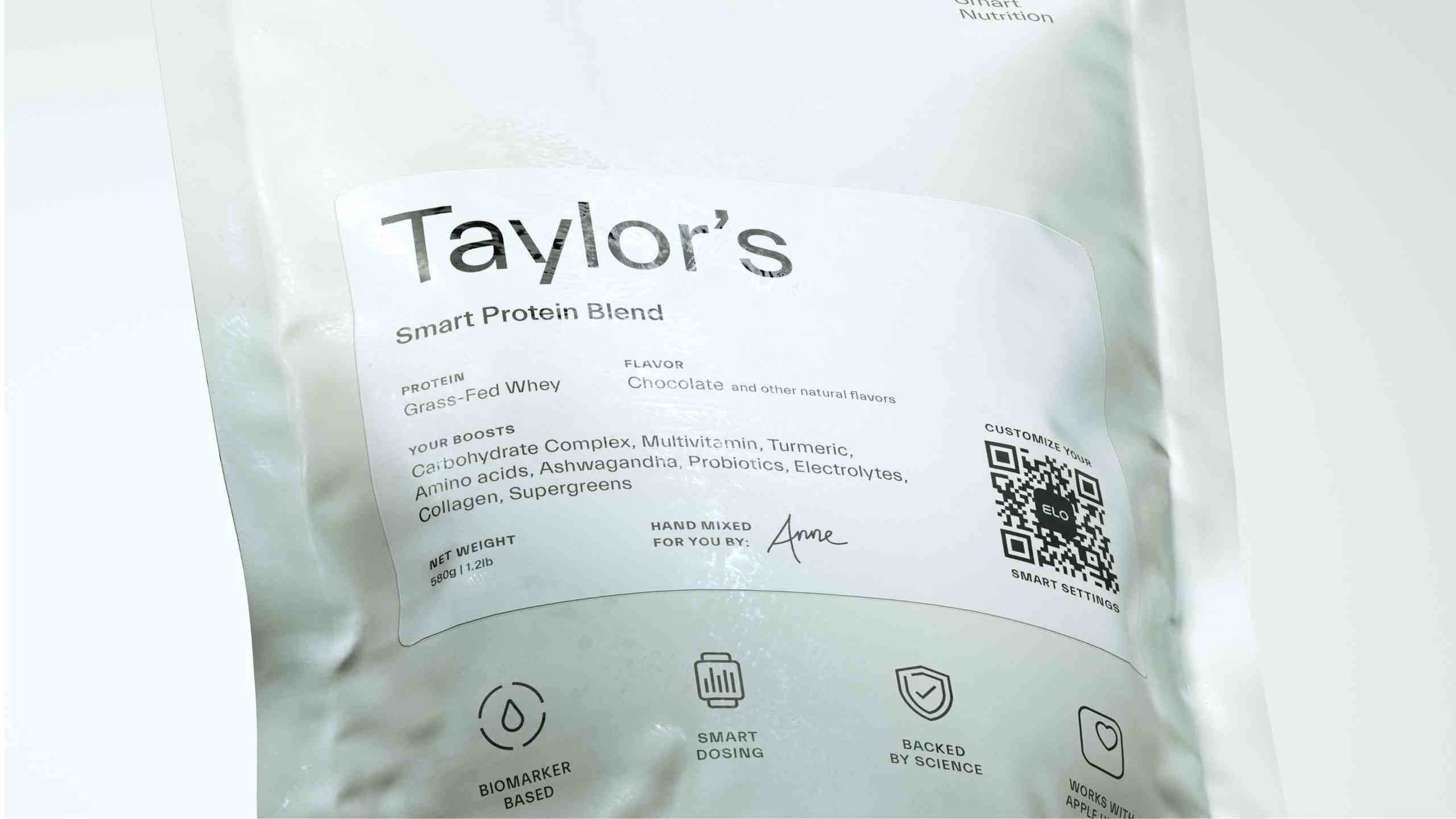Whether you’re looking to enhance performance or maintain weight, chances are you’ve turned to protein to help you reach your goals. After all, science continues to show that protein is an essential macronutrient for muscle growth, bone strength, hormone function, and other important body functions.
While dietary protein has many health benefits, protein powder can also meet your daily nutrient needs. This convenient supplement can make getting your daily protein in easier, but is it really that healthy for you?
Let’s explore some pros and cons of protein powder, as well as what you should look for in a product to ensure the highest quality.

What is protein powder?
Protein powder is a powdered form of protein made from milk (casein or whey), egg white powder, or plant sources (soy, pea, rice, pumpkin seed, and hemp). Protein powders often contain other ingredients–like artificial sweeteners and flavorings, thickening agents, vitamins, minerals, and other functional ingredients–and vary in protein content depending on the type used. For instance, whey protein offers ~25 grams of protein/serving, whereas pea protein contains ~15 grams of protein/serving.
Protein powder can help meet your overall protein needs and positively impact muscle growth, weight maintenance, recovery, and sports performance [1,2,3].
Potential risks
Despite some performance benefits, protein powder isn’t all rainbows and sunshine. Here are some things to consider when using this supplement.
It’s technically a supplement. Unlike food, supplement regulation is largely in the hands of the manufacturer, and FDA approval is only required when the product contains a new ingredient. Because protein powders are considered a supplement, they aren’t regulated and may contain harmful ingredients.
Too much can cause digestive upset. Excessive protein consumption (>2 g/kg/day) may cause dehydration, nausea, diarrhea, fatigue, or intestinal discomfort [4].
It may contain added sugars. While some protein powders may only have a few ingredients, others could have as much as 23 g of added sugar/scoop–which is almost the recommended daily limit [5]. Studies show that consuming excessive amounts of refined sugar can lead to a myriad of health issues, such as an increased risk of heart disease, cancer, weight gain, and type 2 diabetes [6].
Some have artificial sweeteners. Manufacturers often use artificial sweeteners in place of added sugars. While this may seem like a better alternative, science says otherwise. Emerging research has found a correlation between artificial sweeteners (like aspartame, acesulfame-K, and sucralose) and an increased risk of cancer, so be sure to check the labels before purchasing protein powder [7].
What are chemical contaminants found in protein powder?
Protein powders are notorious for containing chemical contaminants that may result in adverse health effects.
BPA exposure has been shown to increase the risk of developing cardiovascular diseases (such as atherosclerosis, hypertension and diabetes), as well as promoting the development of hypertensive disorders during pregnancy [8].
Protein powders may also contain heavy metals like arsenic, cadmium, mercury, and lead. One study found that 40% of tested protein powder products had elevated levels of these compounds, with another report showing that 70% and 74% of their test products contained measurable levels of lead and cadmium, respectively [9].
While heavy metals have been linked to impaired cognitive development, kidney disease, cardiovascular disease, cancer, and diabetes, studies have shown that the amount present in these protein powders may not pose an increased risk to your health [9,10]. However, it’s still best to avoid your exposure when possible.
What to look for in protein powder ingredients
With so many potential risks in protein powder ingredients, it may seem overwhelming to find the right products that are high quality, safe, and effective. But no need to worry–we are here to help you dissect protein powder ingredients to ensure that what you see on the label is what you get.

Enter Elo Smart Protein–it’s the world’s most personalized protein product, offering a combination of high-quality protein, functional nutrient boosts such as super greens and turmeric, and real-time dosing guidance for every tracked workout. It’s also backed by the latest science to help you recover faster and get the most out of every scoop.
But what makes Elo Smart Protein ingredients different from other products on the market? Let’s examine some of these points in more detail.

High-quality ingredients
Unlike other products, each ingredient in Elo Smart Protein is backed by science and precisely selected to support your health journey. Here are some of the high-quality ingredients you can expect from this protein.
Grass-fed whey: Sourced from pasture-raised New Zealand cows and contains no hormones or antibiotics.
Pea protein powder: Sourced from non-GMO Belgian yellow peas and contains no additives, fillers, or soy.
Functional nutrient boosts: These are based on your unique needs and can include ingredients such as turmeric, probiotics, collagen, ashwagandha, amino acids, and electrolytes.
Elo Smart Protein is also non-GMO and contains no added sugar.

Third-party tested
Elo Smart Protein blends undergo rigorous third-party testing to ensure that what you see on the label is what you get. We go to great lengths to ensure that the ingredients in your protein blend are pure and effective. Learn more about Elo’s third-party testing process here.
Summary
Protein is an essential macronutrient for muscle growth, bone strength, hormone function, and other important body functions. While you can consume protein from foods, supplementing with protein powder can also be a convenient way to meet your nutrition needs. However, not all protein powders are created equal, as some may contain harmful ingredients that pose potential risks. As such, it’s important to choose a protein product that has been third-party tested and contains the highest quality ingredients.
Disclaimer: The text, images, videos, and other media on this page are provided for informational purposes only and are not intended to treat, diagnose or replace personalized medical care.

Share:
How to lose weight as an athlete (without crushing your performance)
Everything you need to know about green tea extract supplements